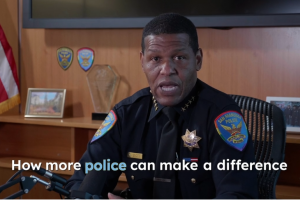In the heart of San Francisco, a maelstrom of controversy has emerged, centered around Mayor London Breed’s persistent efforts to curtail the city’s law enforcement capabilities. From her early career as a member of the Board of Supervisors to her current mayoral tenure, Mayor Breed’s commitment to dismantling the criminal justice system has remained a focal point. Despite her intentions to reform, recent actions have evoked questions about the implications of her approach on public safety and the city’s security landscape.
A Legacy of Reform:
Mayor Breed’s crusade against the traditional incarceration system, stemming from personal experiences with incarcerated individuals, has been a driving force behind her political career. Her 2015 declaration to dismantle the system of mass incarceration signified a radical departure from conventional policies, setting the stage for a series of transformative changes within San Francisco’s criminal justice system.
Shifting Priorities in San Francisco:
San Francisco has long been recognized for its progressive criminal justice approach, emphasizing rehabilitation over imprisonment. However, the city’s recent shift toward diverting criminals from traditional incarceration has sparked public outcry. The surge in open-air drug dealing and drug-related fatalities has highlighted the limitations of this lenient approach, leading to a palpable sense of insecurity within the community.
Ambiguous Stance and Public Backlash:
Amid mounting pressure, Mayor Breed’s attempts to increase law enforcement presence have been met with skepticism. Despite minor increases in the jail population, street-level crime rates remain alarming, calling into question the city’s commitment to public safety. The city’s reputation as one that uses leniency without firm enforcement has intensified public frustration and concern.
The Defunding Declaration and Contradictory Actions:
Mayor Breed’s 2020 endorsement of the nationwide movement to defund the police marked a significant turning point in San Francisco’s law enforcement landscape. Despite subsequent attempts to present herself as pro-public safety, her decisions to freeze deputy sheriff and police hiring in 2022 and allocate $120 million from law enforcement to the African American community in 2021 indicate a consistent trend of budget cuts and reallocation, casting doubts on the city’s ability to maintain law and order.
The Sheriff’s Office’s Struggle:
The San Francisco Sheriff’s Office has found itself in a precarious position, grappling with diminished resources and a surge in criminal activity. Mayor Breed’s persistent budget cuts and policy shifts have strained law enforcement capabilities, leaving the city more vulnerable to crime. The reduction in law enforcement officers and the introduction of civilian-led crisis teams have brought into question the effectiveness of Mayor Breed’s reformist approach.
Civilianization of Law Enforcement and Its Implications:
The city’s embrace of civilian-led initiatives has drawn attention to the broader ideological conflict between reformist agendas and the imperative of upholding public safety. While proponents argue for a more community-oriented and empathetic policing approach, critics highlight the inadequacy of such strategies in addressing the complex challenges of urban safety, as evidenced by the continued prevalence of crime and insecurity on San Francisco’s streets.
Silent Defunding and Unaddressed Police Shortages:
Board of Supervisor Safai exposed Mayor London Breed for quiet cutting. Recent revelations have shed light on Mayor Breed’s discreet budgetary maneuvers, including the failure to increase the Police Department’s recruitment budget despite multiple requests from Police Chief Scott. This inaction has left the SF Police Department with a significant shortage of 700 officers, highlighting the consequences of silent defunding on law enforcement capabilities and public safety.
Mayor London Breed’s fervent commitment to reforming San Francisco’s criminal justice system has resulted in a contentious and turbulent period for the city’s law enforcement agencies. While her advocacy for reform and resource reallocation aligns with progressive ideologies, the adverse impact on public safety and the growing concerns about the city’s security underline the pressing need for a balanced approach that prioritizes both reform and the maintenance of law and order. As San Francisco continues to grapple with rising crime rates, the imperative for a comprehensive and sustainable strategy that addresses both community needs and public safety remains paramount.

 Chief Scott stated the San Francisco Police Department is short 400 police officers and that if he increases police in San Francisco it will reduce crime. What about all the police officers he has assigned to the San Francisco Airport which is located over 10 miles South of San Francisco in San Mateo County? Why doesn’t he return some of them to SF? As flights increase at SFO, the airport will demand more police. Will Chief Scott continue to send his experienced police officers to SFO? This is such an inefficient practice.
Chief Scott stated the San Francisco Police Department is short 400 police officers and that if he increases police in San Francisco it will reduce crime. What about all the police officers he has assigned to the San Francisco Airport which is located over 10 miles South of San Francisco in San Mateo County? Why doesn’t he return some of them to SF? As flights increase at SFO, the airport will demand more police. Will Chief Scott continue to send his experienced police officers to SFO? This is such an inefficient practice.